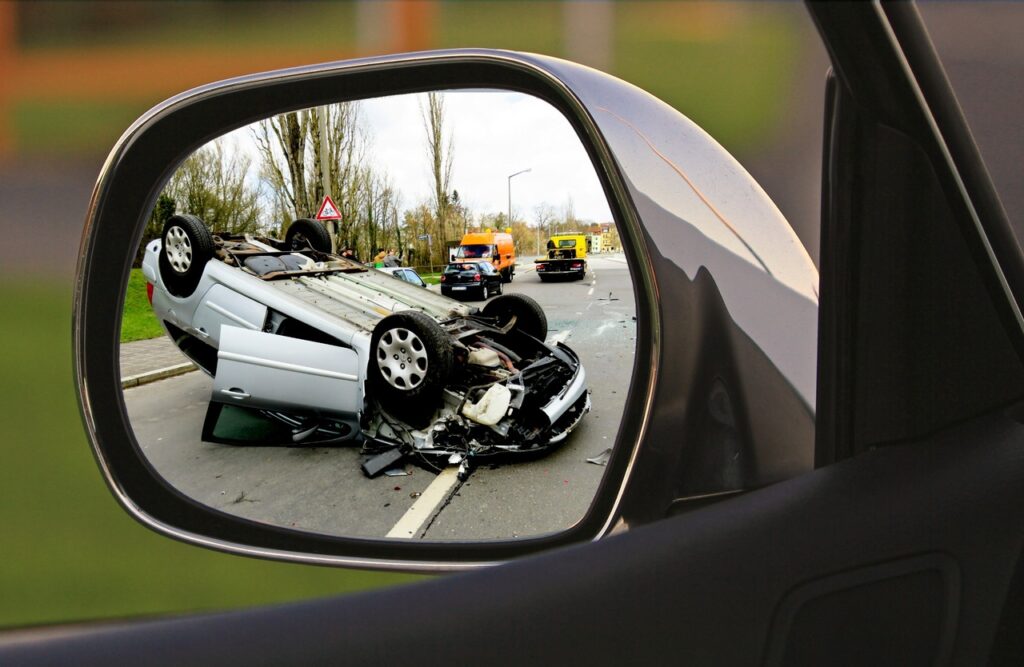Now Reading: Legal Remedies for Life-Altering Accidents
-
01
Legal Remedies for Life-Altering Accidents

Legal Remedies for Life-Altering Accidents
When an accident leaves a person with catastrophic injuries, the consequences extend far beyond the immediate pain and suffering. These life-altering events often lead to permanent disability, long-term medical treatment, emotional trauma, and financial hardship. For victims and their families, navigating the aftermath can feel overwhelming. Fortunately, the legal system provides avenues for recovery and justice.
Understanding the available legal remedies is essential to protect your rights and obtain the support necessary to rebuild your life.
What Are Catastrophic Injuries?
Catastrophic injuries are those that result in long-term or permanent impairment. These injuries often require extensive rehabilitation and ongoing medical care. Examples include:
- Traumatic brain injuries (TBI)
- Spinal cord damage
- Amputations
- Severe burns
- Multiple fractures
- Organ damage
- Paralysis or quadriplegia
The physical impact is often matched by emotional and financial tolls, making it critical to pursue appropriate legal remedies.
Legal Basis for Compensation
Personal Injury Law
Personal injury law provides the foundation for most claims following a serious accident. Victims can pursue damages if the injury occurred due to another party’s negligence, recklessness, or intentional misconduct. Common scenarios that result in catastrophic injury claims include:
- Car and truck accidents
- Motorcycle crashes
- Workplace incidents
- Defective products
- Medical malpractice
- Construction site injuries
Each case must demonstrate that a duty of care was breached and that the breach directly caused the injury. For more information on the scope of personal injury law and how it applies to catastrophic injury cases, you can refer to this comprehensive guide from Forbes Advisor.
Workers’ Compensation vs. Personal Injury
In workplace accidents, injured employees may qualify for workers’ compensation benefits, which cover medical expenses and a portion of lost wages. However, these benefits often fall short of the full range of losses a victim may suffer. If a third party (e.g., equipment manufacturer or contractor) was responsible, a personal injury lawsuit may offer broader compensation.
Types of Legal Remedies Available
Economic Damages
Economic damages are quantifiable losses that directly result from the injury. These may include:
- Medical bills (past and future)
- Rehabilitation costs
- Lost income and reduced earning capacity
- Costs of home modifications or mobility aids
Non-Economic Damages
Non-economic damages compensate for subjective losses that don’t have a clear monetary value, such as:
- Pain and suffering
- Emotional distress
- Loss of enjoyment of life
- Loss of companionship or consortium
Punitive Damages
In cases involving gross negligence or malicious intent, courts may award punitive damages to punish the wrongdoer and deter similar conduct in the future. These are awarded in addition to compensatory damages and are less common, but they can be significant in egregious cases.
Importance of Legal Representation
Navigating Complex Lawsuits
Catastrophic injury cases are complex and often involve multiple parties, intricate medical evidence, and high financial stakes. A skilled personal injury attorney plays a critical role in building a strong case, negotiating settlements, and, when necessary, litigating in court.
An experienced Springfield catastrophic injury lawyer can assess your case, calculate long-term losses, and help pursue fair compensation.
Investigating and Proving Liability
In catastrophic injury claims, proving liability is not always straightforward. Attorneys may consult accident reconstruction experts, medical specialists, and financial planners to:
- Recreate the accident scene
- Demonstrate the extent of the injuries
- Show how the injury affects the victim’s ability to work and function
- Calculate lifetime costs of care
A well-supported claim increases the likelihood of reaching a favorable outcome, whether through settlement or trial.
Common Defenses in Catastrophic Injury Cases
Comparative Negligence
One of the most common defenses raised in personal injury cases is that the victim was partially at fault for the accident. In Ohio, the modified comparative negligence rule applies. This means that a plaintiff can still recover damages if they are found to be less than 51% at fault, but the compensation is reduced in proportion to their degree of fault.
Assumption of Risk
In certain cases, the defendant may argue that the injured party voluntarily accepted a known risk. This defense is more common in recreational injury cases, such as sports or adventure activities, and can impact liability and damages.
Statute of Limitations in Ohio
Victims of catastrophic injuries must act within the legal time frame set by state law. In Ohio, the statute of limitations for personal injury cases is typically two years from the date of the injury. Failing to file within this period may result in the loss of the right to recover any damages. However, exceptions exist, especially in cases involving minors or delayed discovery of injury.
Maximizing Compensation: Tips for Victims
- Document Everything: Maintain thorough records of medical treatments, expenses, lost wages, and communication with insurance companies.
- Follow Medical Advice: Gaps in treatment or failure to follow medical instructions can harm your credibility and reduce potential compensation.
- Avoid Early Settlements: Insurance companies may offer lowball settlements to resolve claims quickly. Don’t accept without consulting an attorney.
- Consider Future Needs: Life-care planners and vocational experts can help estimate the long-term impact of your injury and assist in presenting a full picture to the court.
Emotional and Psychological Support
Recovery from a catastrophic injury is not just physical—it also involves emotional healing. Depression, anxiety, PTSD, and chronic pain are common among victims. Legal remedies can help cover the costs of therapy and counseling, ensuring comprehensive care.
Support groups and community organizations can also play a vital role in the recovery process, offering victims a chance to share their stories and receive encouragement from others who’ve experienced similar trauma.
Trusted Legal Advocacy in Springfield
When facing the aftermath of a life-altering accident, it’s essential to have legal support from a trusted and experienced firm. You can learn more about their qualifications and peer-reviewed recognition through their legal profile.
Conclusion
Life after a catastrophic injury is full of challenges, but legal remedies exist to help victims reclaim stability, dignity, and a sense of justice. By working with experienced attorneys, understanding your rights, and pursuing the compensation you deserve, you can begin the path toward healing and hope.
About the author: Irma C. Dengler
With a BA in communications and paralegal experience, Irma C. Dengler decided to make the best of her writing skills. She decided to turn complicated legal matters into something more palatable for the masses. Therefore, Irma became a law communicator who writes about everyday problems so everyone can understand them and take the appropriate action. She specializes in personal injury cases, as they are more common than anyone thinks, but her areas of expertise also include civil law, criminal law, insurance-related issues, and more.











